news
Group Sues LASIEC Over Plan to Conduct LG Elections in 57 LCDAs
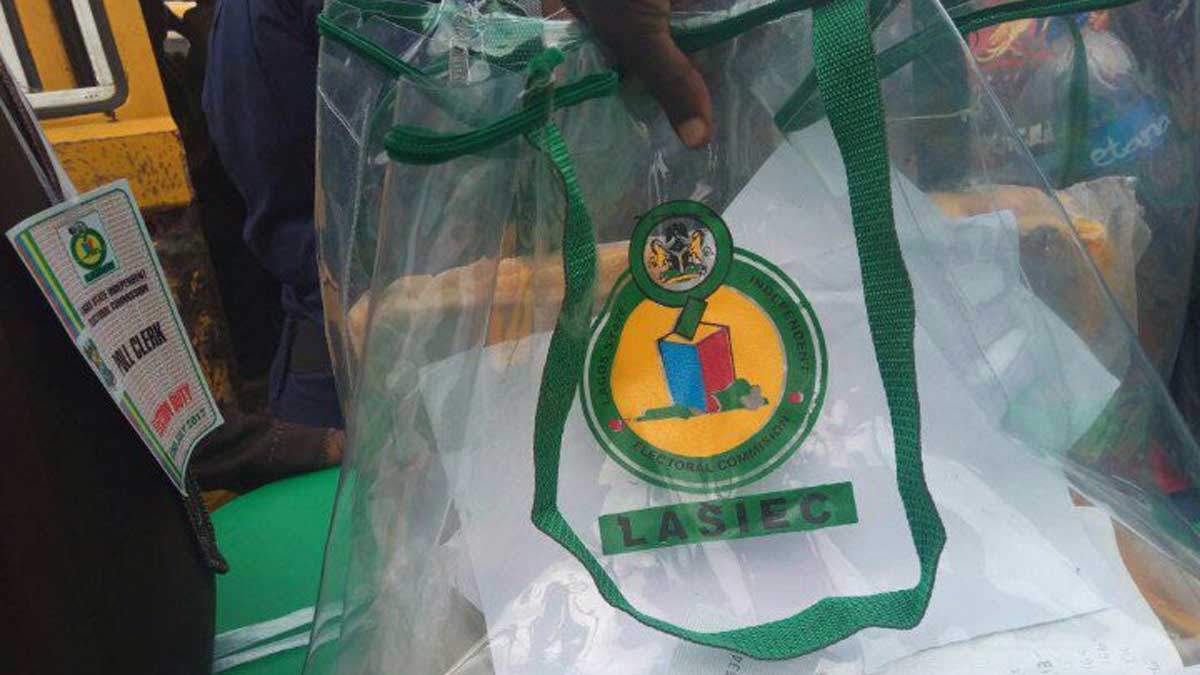
A Lagos-based socio-cultural group, De Renaissance Patriots Foundation, has filed a lawsuit against the Lagos State Independent Electoral Commission (LASIEC) over its plan to conduct local government elections in 37 Local Council Development Areas (LCDAs), instead of the 20 constitutionally recognized local government areas.
The suit, lodged at the Federal High Court in Ikoyi, challenges the legality of holding elections in the LCDAs. The Foundation argues that the planned polls are unconstitutional, illegal, and in clear violation of the 1999 Constitution of the Federal Republic of Nigeria (as amended).
The plaintiff is asking the court to determine whether LASIEC possesses the legal authority to conduct elections outside the 20 LGAs explicitly recognized in the constitution. The case is expected to come up for hearing in July.
Sanwo-Olu to Meet APC Stakeholders to Strategize Ahead of LG Polls
APC Chairmanship Aspirant Unveils Seven-Point Agenda for Ejigbo LCDA
Meanwhile, an All Progressives Congress (APC) chairmanship aspirant for Ejigbo LCDA, Taoheed Taiwo, has unveiled a seven-point development agenda as part of his campaign to bring inclusive and sustainable governance to the community.
Speaking during the official flag-off of his campaign, Taiwo described his manifesto as a “people-based social contract” that prioritizes action over promises. He urged residents to unite behind a vision focused on inclusion, security, and growth.
Taiwo’s agenda includes:
-
Improved Qualitative Healthcare – Establishing solar-powered primary healthcare centers and providing health insurance for the elderly and vulnerable.
-
Education Development – Reconstructing public primary schools across the LCDA.
-
Infrastructure Renewal – Rehabilitating roads, enhancing traffic systems, and installing streetlights for improved safety and mobility.
-
Inclusive Empowerment
-
Enhanced Security – Strengthening community policing, supporting local vigilantes, and improving emergency response mechanisms.
-
Economic Growth
-
Environmental Beautification
Taiwo emphasized his commitment to translating the manifesto into measurable outcomes and called on residents to embrace the opportunity for meaningful progress.
news
Lagos Overhauls Chieftaincy Law, Empowers Governor with Final Authority
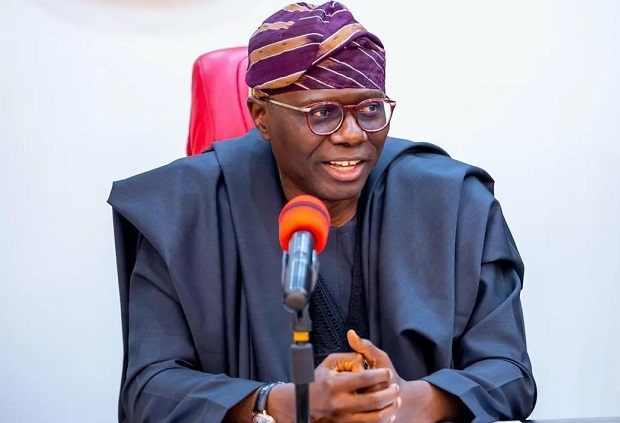
Lagos Proposes Overhaul of Chieftaincy Law, Expands Governor’s Authority and Codifies Monarchs’ Roles
In a historic move to modernize traditional governance, the Lagos State Government is set to repeal and re-enact the Obas and Chiefs Law, introducing a comprehensive legal framework that redefines the roles of traditional rulers and strengthens government oversight.
The draft bill, currently under review following a high-level stakeholders’ meeting convened by the Ministry of Justice, seeks to clarify the functions, powers, and legal standing of monarchs within Lagos’ evolving administrative landscape. Attendees included traditional rulers from the state’s five divisions, lawmakers, legal experts, and community leaders.
Sanwo-Olu to Meet APC Stakeholders to Strategize Ahead of LG Polls
Defining the Role of Traditional Rulers
One of the bill’s key innovations is the formal codification of the duties of Obas and Chiefs. Section 2 of the proposed law lists their responsibilities as conflict mediation, community development, grassroots communication, security support, and advocacy for tax compliance. This legal recognition aims to resolve longstanding ambiguity surrounding their function in democratic governance.
The bill also exempts official palaces and heritage homes—such as the Iga and Awanu—from property rates, acknowledging their cultural significance and allowing for state-supported maintenance, subject to the consent of the ruling Oba or Chief.
Governor’s Authority Over Chieftaincy Affairs
A major and contentious feature of the bill is the expanded power of the Governor in chieftaincy matters. Under the new law, the Governor can approve, reject, or reverse traditional appointments—even if customary selection processes are followed—based on public interest, peace, or order.
While this provision is intended to prevent disputes, critics argue it centralizes authority excessively. To mitigate concerns, the bill permits affected parties to challenge such decisions in court within 21 days and mandates a 60-day response window for the Governor on petitions.
Regulation of Customary Chiefs and Anti-Impersonation Measures
To address the proliferation of impostor chiefs, the bill introduces penalties for unauthorized installations. Section 23 prescribes up to two years’ imprisonment or a N5 million fine for installing or impersonating a chief without approval. It also penalizes those who obstruct installation rites or occupy chieftaincy property unlawfully.
Chieftaincy Committees at the local government level will handle appointments and disputes, ensuring adherence to custom and legality.
Criteria for Establishing New Chieftaincy Titles
The bill stipulates that any new traditional stool must be at least 120 years old under customary law. Proposals will undergo a public inquiry, legal vetting, and community feedback within a 30-day period before final approval by the Governor. This process aims to preserve the integrity of traditional institutions and avoid politically motivated creations.
Reclassification of Obas and Control of Honorary Titles
The law also introduces a classification system for monarchs: Special Grade, Grades A, B, and C (which includes upgraded Baales). This is expected to reduce intra-council disputes over status.
The conferment of honorary chieftaincy titles is now restricted to Obas—limited to five per year and subject to prior approval by the Commissioner. Unauthorized title conferments are criminalized, carrying similar penalties as illegal installations. Additionally, honorary chiefs cannot be elevated to full traditional rulers.
Restructuring of the Council of Traditional Rulers
Part 8 of the proposed law reorganizes the Lagos State Council of Traditional Rulers. The Oba of Lagos becomes the permanent Chairman, supported by four Deputy Chairmen representing the state’s divisions and five rotating Vice Chairmen from Grade A monarchs. With a 60-member council, the body will advise the state on traditional matters, provide policy feedback, and assist with conflict resolution.
Conclusion
Lagos State’s bold legislative initiative could redefine the relationship between modern government and traditional institutions. By clarifying roles, regulating appointments, and institutionalizing legitimacy, the proposed law aims to harmonize cultural heritage with contemporary governance needs.
If implemented with fairness and diligence, the new chieftaincy law could serve as a national model for traditional leadership reform.
news
Sanwo-Olu to Meet APC Stakeholders to Strategize Ahead of LG Polls

Lagos State Governor, Mr. Babajide Olusola Sanwo-Olu, will tomorrow at noon host a stakeholders’ parley with leaders, elected and appointed officials, as well as chairmanship and councillorship candidates of the All Progressives Congress (APC) at the State House, Marina.
The high-level meeting is expected to serve as a strategic rallying point for party mobilisation ahead of the July 12 local government elections.
This follows the formal presentation of party flags to the 57 APC chairmanship candidates last week at the party’s state secretariat in Ogba — a colourful event attended by key figures in government and the party hierarchy. The ceremony marked the official commencement of campaigns and provided a morale boost to party faithful in anticipation of another electoral victory.
Lagos LG Polls a Strategic Step Toward Tinubu’s Re-election, Says Sanwo-Olu
The Lagos APC expresses deep appreciation for the trust and confidence reposed in the party by Lagosians, which has continued to drive the state’s unmatched progress across all sectors.
We remain confident that the outstanding achievements of our local councils — particularly in education, primary healthcare, housing, and grassroots social interventions — will be rewarded with widespread voter support at the polls.
Business
Lagos Pushes Urban Agriculture Agenda, Sensitises Key Stakeholders

The Lagos State Government, through the State Agricultural Development Authority (LSADA), has called for the adoption of integrated urban farming solutions to address food insecurity and promote sustainable food systems across the state.
This call was made during a one-day Stakeholders’ Workshop on Urban Agriculture held at the Fresh Food Hub, Idi-Oro, Mushin. The workshop aimed to sensitise Heads of Agriculture Units from the 57 Local Government and Local Council Development Areas (LCDAs), as well as environmental health officers, on the strategic importance of urban agriculture.
Commissioner for Agriculture and Food Systems, Ms. Abisola Olusanya—represented by Dr. Rasheed Macaulay, Director of Veterinary Services—stressed the urgency of promoting urban agricultural land use and increasing grassroots awareness. She said that cascading this knowledge with the right education and technical support was vital for building a sustainable food future.
“Integrating agriculture into urban landscapes reduces reliance on external food sources, cuts down transportation costs, and improves access to fresh, nutritious produce,” Olusanya said. “The Lagos State Government, through the Ministry of Agriculture and Food Systems and its agencies, is fully committed to this vision. We are developing enabling policies, strengthening extension services, supporting innovation, and partnering with local councils to scale up urban farming across the state.”
She also noted that urban agriculture must evolve from small pilot schemes to being embedded in schools, homes, markets, and faith-based institutions.
LSADA Programme Manager, Mr. Alade Aliru, highlighted the benefits of cultivating food close to where it is consumed. He explained that this approach reduces the environmental impact of food transportation while fostering greener, healthier cities.
“This workshop is designed to engage stakeholders on the opportunities and practical strategies for implementing urban agriculture in their local communities,” Aliru said. “From backyard gardens to vertical farms and container planting, urban agriculture is becoming a key part of our evolving food ecosystem.”
Also speaking at the event, the Permanent Secretary of the Ministry, Emmanuel Fatai Audu—represented by Director of Fisheries, Mr. Daisi Agarrey—emphasized that rapid urbanisation has placed immense pressure on land and food systems. He described urban farming as a strategic response.
“Urban agriculture is no longer a choice—it is a necessity,” Audu stated. “It’s not just about growing food; it’s about building healthier communities, greener environments, and resilient livelihoods.”
The workshop forms part of Lagos State’s broader commitment to sustainable development and environmental resilience through innovative agricultural practices.
-
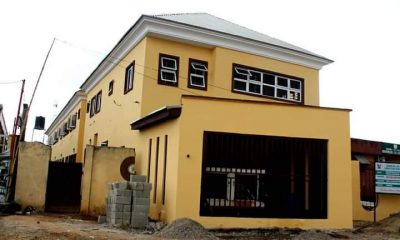
 Conference 577 months ago
Conference 577 months agoAgbado/Oke-Odo LCDA: A Hub of Transformation Under Chairman Famuyiwa
-
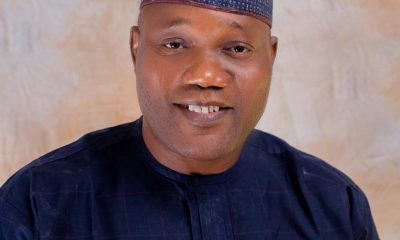
 Conference 5710 months ago
Conference 5710 months agoOjokoro LCDA: A Hub of Development and Progress
-

 entertainment11 months ago
entertainment11 months agoRHOLagos Season 3 Unveiled: Sophia Momodu, Dabota Lawson & Adeola Diadem Join the Drama!
-

 news11 months ago
news11 months agoThe Future of Football: Top Academies in Lagos Shaping Nigeria’s Next Stars
-
Conference 5710 months ago
Agege Local Government: A Thriving Hub of Progress, Leadership, and Growth
-
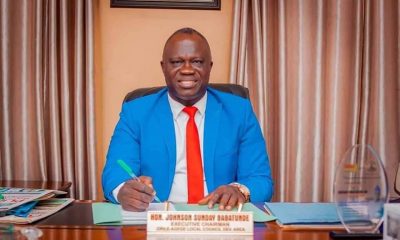
 Conference 5710 months ago
Conference 5710 months agoOrile Agege LCDA: A Model of Growth and Development in Lagos
-

 Conference 577 months ago
Conference 577 months agoTransforming Communities: Inside the Leadership of Igando-Ikotun LCDA
-
lifestyle11 months ago
Rasaq Okoya at 85: Celebrating the Legacy of a Nigerian Business Icon




